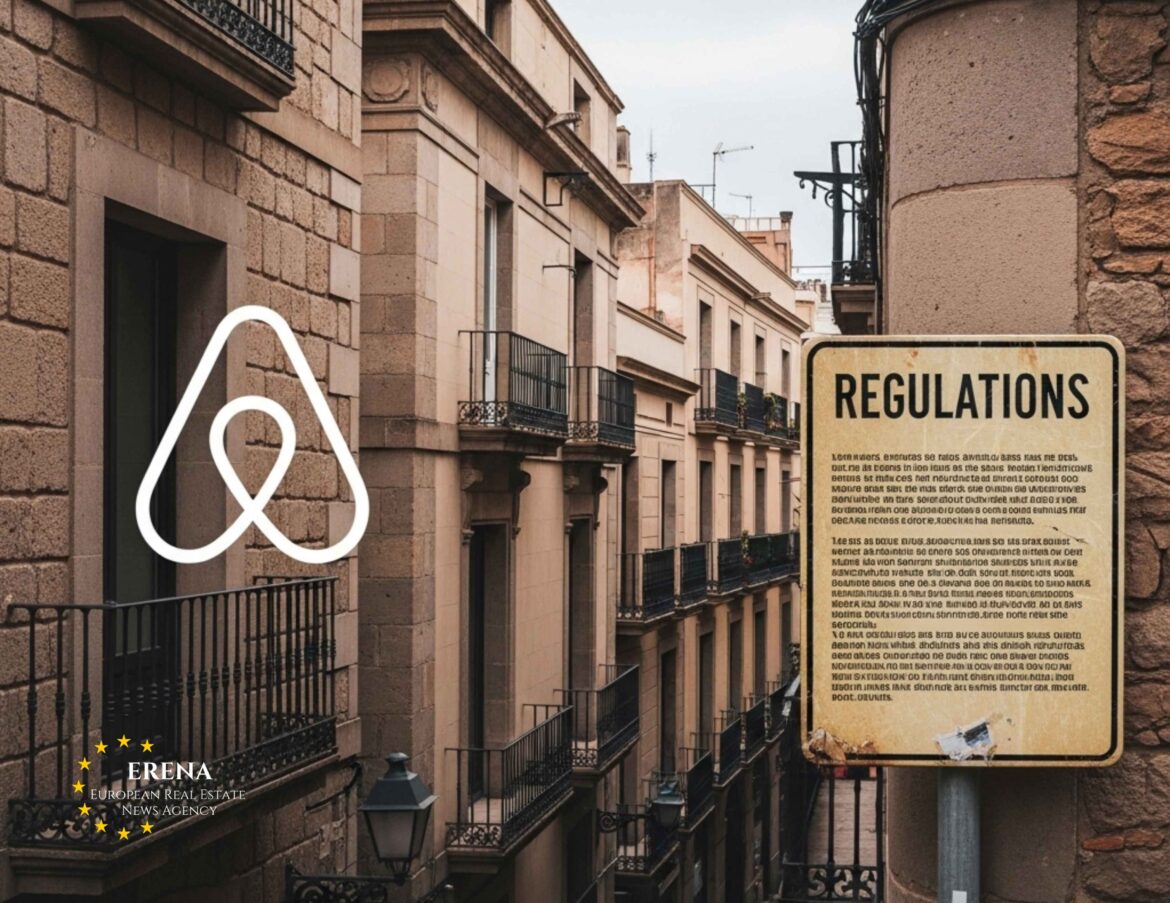In response to a growing housing shortage and rising public discontent, Europe’s most iconic cities are tightening regulations on short-term rentals through platforms like Airbnb. While such platforms were initially embraced for boosting tourism and local economies, they are now being blamed for escalating rents, displacing residents, and transforming residential neighborhoods into tourist zones.
Why Airbnb Is Under Scrutiny
Short-term rentals have surged in popularity due to their ease of use and profitability. However, in many major cities, the proportion of homes dedicated exclusively to tourist accommodation has surpassed acceptable levels, contributing to serious distortions in the housing market.
According to Eurostat, in 2024, more than 25% of residential properties in central areas of cities like Barcelona, Paris, Amsterdam, Berlin, and Florence were listed on platforms like Airbnb, often for full-time vacation rental.
This trend has led to:
- Reduced availability of long-term rental housing
- Rent increases of 30% to 60% in popular neighborhoods
- Overcrowding of historic and residential districts
- Rising tensions between locals and short-term guests
Paris: Capping Rental Days
The French capital was one of the first to impose strict regulations on Airbnb. Currently, property owners may rent their primary residence for up to 120 days per year. The home must also be registered with the municipality, and violations can lead to fines of up to €50,000.
In 2025, the city is discussing proposals to further reduce the annual cap to 60 days in high-pressure areas.
Barcelona: License Revocation in the City Center
Barcelona has taken one of the boldest steps to date. Mayor Jaume Collboni announced that all short-term rental licenses in the historic center will be revoked by 2026. This measure targets over 10,000 housing units currently used for tourism rather than local accommodation.
The city plans to purchase and convert some of these units into affordable housing for residents.
Amsterdam: Tight Permits and Night Limits
Amsterdam has introduced a strict licensing system for short-term rentals. Key rules include:
- A 30-night annual limit per property
- A maximum of four guests at any time
- Mandatory registration with the city
- Bans in certain overcrowded neighborhoods
Violators face fines of up to €20,750.
Berlin: Targeting Investor-Driven Rentals
Berlin has gone a step further by enacting laws to prevent the conversion of apartments into permanent tourist rentals. From 2024, new licenses are restricted, particularly for corporate investors and commercial operators.
Districts such as Friedrichshain, Prenzlauer Berg, and Neukölln have implemented stricter local enforcement following a surge in complaints from residents.
Vienna and Florence: Protecting the Historic Core
In Vienna, even renting out a single room in the historic core requires municipal approval. From 2025, the city is considering a complete ban on short-term rentals in the Innere Stadt district.
Similarly, Florence imposed a moratorium on new Airbnb licenses in its historic center. Authorities cite the need to protect cultural heritage and combat the “touristification” of once-residential zones.
A Europe-Wide Response
In 2023, the European Commission proposed a draft Short-Term Rental Regulation, aiming to harmonize transparency and data sharing across EU member states.
Under the new rules (expected by 2026), platforms like Airbnb must:
- Share listing addresses with local authorities
- Report the number of nights rented per property
- Disclose host identity and license numbers
This EU-wide approach is intended to empower cities to better manage housing supply and enforce local laws.
Expert Opinions
A study by the London Urban Policy Institute found that limiting short-term rentals could reduce average rents by 10% to 15% in impacted neighborhoods. Analysts argue that while platforms like Airbnb offer economic benefits, unregulated expansion turns them into speculative tools, especially in cities with chronic housing shortages.
Meanwhile, hosts and tourism advocates counter that restrictions threaten small business income and reduce tourism capacity. In 2024 alone, Airbnb hosts in France generated over €2.4 billion in earnings, according to the company.
Alternative Models
Some cities are experimenting with balanced models, including:
- Seasonal restrictions (e.g., only renting in low season)
- Mandatory contributions to municipal housing funds
- Limits based on property size or number of listings
- Use of public booking platforms for transparency and taxation
Conclusion
Airbnb has reshaped the way people travel—and the way cities function. However, the social cost of unchecked growth is becoming impossible to ignore. From license revocations to night caps and outright bans, Europe’s cities are determined to reclaim housing for residents.
The future of short-term rentals in Europe lies in regulation, transparency, and social balance. Tourism is vital—but not at the expense of a city’s livability.

